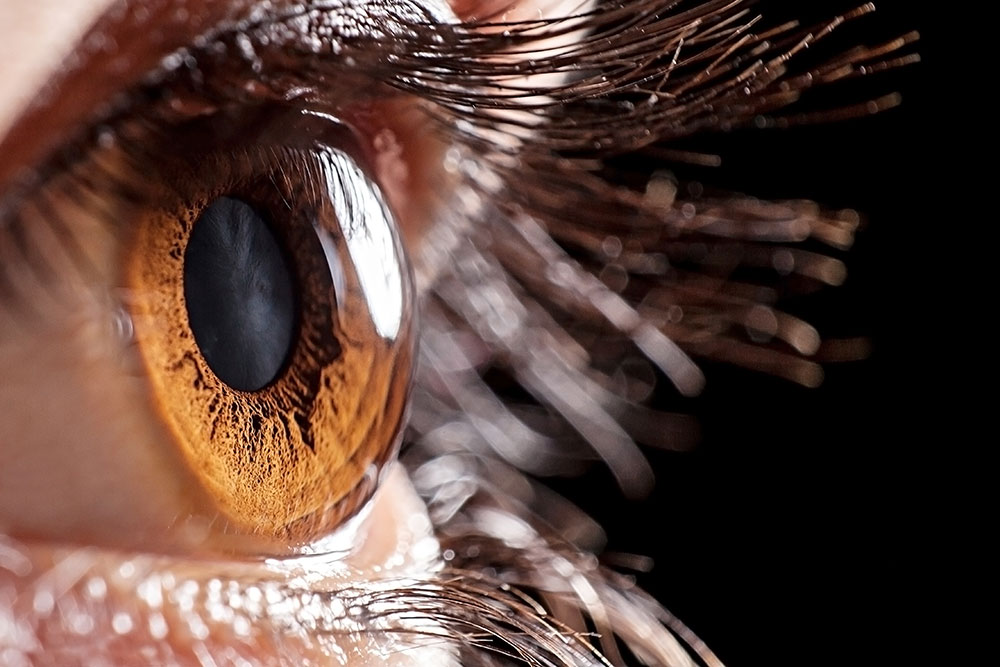Retina

At Clayton Eye Center, our retina specialist, Dr. d’Heurle, is dedicated to providing you with exceptional care to help diagnose and treat any retinal condition you may be experiencing. If you have a retinal condition, you can be confident you are in good hands with the dedicated staff and eye doctors at Clayton Eye Center.
What is the Retina?
The retina is photosensitive tissue located at the back of the eye. A healthy retina is vital for you to be able to experience clear, crisp, and full vision.
Once light enters your eye and lands on your retina, the retina sends the information gathered from the light as electrical signals to the brain. Once at the brain, this information is transformed into an image that you can see.
Any issues in or around the retina can affect your ability to see. Many eye conditions can affect the retina, and most of these eye conditions require treatment in order to prevent or slow vision loss.
The best way to prevent vision loss caused by a retinal condition is through early detection. For this reason, it is important to visit your eye doctor regularly to ensure your vision is not at risk.
What Retinal Conditions are Treated by the Eye Doctors at Clayton Eye Center?
At Clayton Eye Center, our retinal specialist Dr. d’Heurle treats patients with a variety of retinal conditions at our Morrow and McDonough locations. If you are experiencing any symptoms of a retinal condition, schedule an appointment with your eye doctor right away.
Diabetic Macular Edema
Diabetic macular edema is an eye condition that affects the retina and is a complication of diabetes. If your blood sugar is uncontrolled and elevated, you may be at risk for developing this eye condition or others related to diabetes.
Diabetic macular edema occurs when fluid accumulates in the macula, which is the part of your retina that controls your central vision. If you have diabetes and notice blurred vision, double vision, or a sudden increase in floaters, make an appointment with your eye doctor to determine the root cause.
Cystoid Macular Edema
Cystoid macular edema, also known as CME, is another eye condition that affects the macula. Those who have cystoid macular edema have multiple cyst-like areas of fluid that appear in the macula.
These areas cause swelling in the macula and can cause you to experience blurred or decreased central vision. You may develop CME due to injury, eye surgery, or as a result of certain eye conditions.
It’s always best to visit your eye doctor right away if you notice any changes to your vision.
Macular Degeneration
Macular degeneration is a type of eye condition that often develops as a result of aging. Macular degeneration, like other types of retinal conditions, affects your central vision.
In its beginning stages, known as dry macular degeneration, the retina begins to deteriorate. In the more advanced form of macular degeneration, known as wet macular degeneration, fragile and irregular blood vessels begin to grow underneath the retina.
These new blood vessels can leak and cause many additional vision issues and possibly even a retinal detachment. Macular degeneration causes blurred or reduced central vision. If you notice these symptoms, schedule an appointment with your eye doctor right away.
Retinal Detachment
A retinal detachment is a sight-threatening medical emergency. If left untreated, it can cause permanent, irreparable vision loss.
When a retinal detachment occurs, the retina is pulled away from the eye’s wall. Often, the most common symptoms of a retinal detachment are flashes of light, an increase in floaters, or the appearance of a curtain or shade coming across your vision.
Although these symptoms aren’t always as a result of a retinal detachment, it’s best to visit your eye doctor at Clayton Eye Center to be sure you are not at risk for permanent vision loss.
How Do the Eye Doctors at Clayton Eye Center Treat Retinal Conditions?
There are many options for treatment that the eye doctors at Clayton Eye Center use to help halt the progression of certain retinal conditions and prevent further vision loss.
Injections
Often, retinal injections are the initial treatment method used to help control many retinal conditions and prevent their progression. In some cases, retinal injections may help improve vision. However, the primary goal of treatment is to help prevent future vision loss.
At Clayton Eye Center, our retinal specialist, Dr. d’Heurle, uses many different types of retinal injections to control various retinal conditions, including Avastin, Lucentis, Vabysmo, and Eylea.
Retinal injections often need to be administered regularly, typically every four to six weeks, to ensure the therapy is efficient. If your eye doctor believes this is the best treatment method for you, they will create a treatment schedule and discuss the process with you.
Argon Laser
In some cases, your eye doctor may recommend a laser treatment with the argon laser to help control certain retinal conditions and halt vision loss. An argon laser is a device that uses argon gas and produces a beam of light that stops blood vessels from leaking, among many other things.
In most cases, the argon laser procedures are fairly quick and easy. If your eye doctor determines that laser therapy will best help control your retinal condition, they will discuss the details of the procedure with you.
Surgery
For more advanced cases of certain retinal conditions, surgery may be necessary. For retinal detachments, surgery is often needed immediately.
There are many different types of procedures used, depending on the specific retinal condition it is treating. At Clayton Eye Center, Dr. d’Heurle performs surgery in the Atlanta Piedmont Hospital.
If your eye doctor believes that surgery is necessary to treat your retinal condition, your eye doctor will discuss the procedure and what you will need to do to ensure that you have a full recovery.
Are you interested in learning more about the retinal conditions treated at Clayton Eye Center? Schedule an appointment at Clayton Eye Center in Morrow, GA, today!

